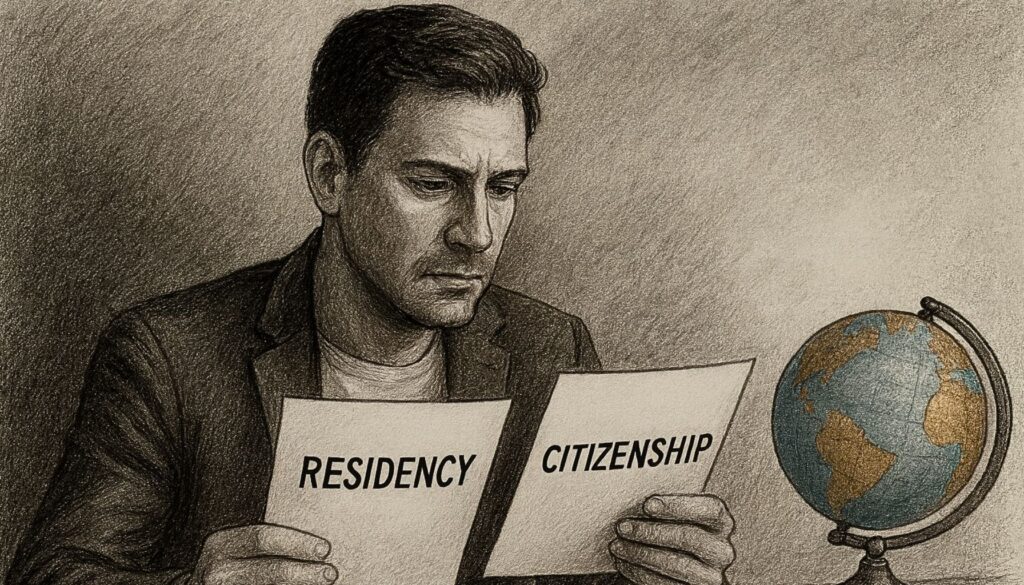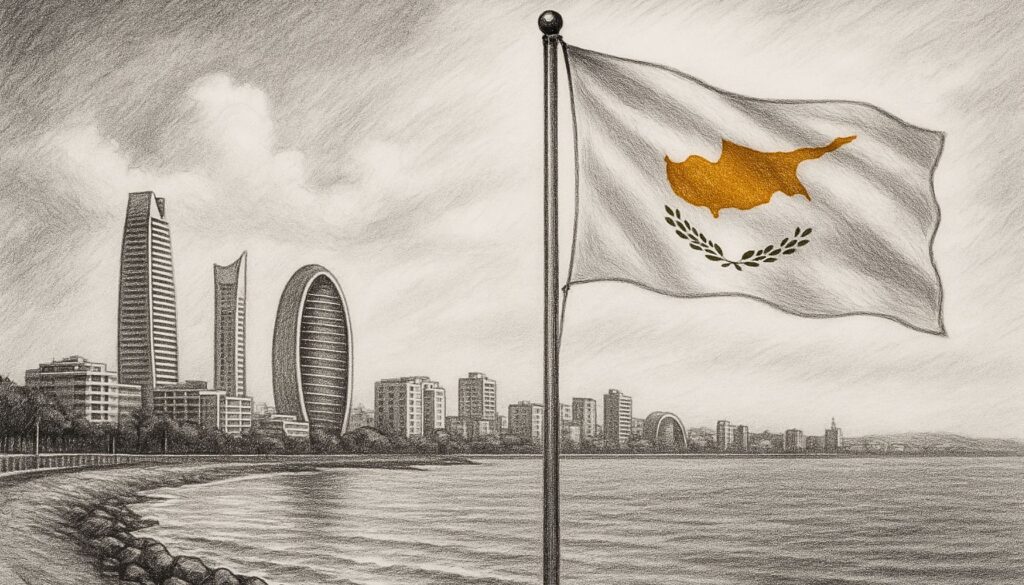What many feared is now a reality: the arrest of Pavel Durov in 2024. This genius behind Telegram, a fierce defender of digital freedom, was detained under the worn-out excuse of “national security.” But let’s be honest, this feels like something much more sinister: Europe, once proud of being the land of individual rights, is trampling on the last frontiers of digital privacy.
State surveillance has steadily gained ground, and now we are witnessing the tightening grip on the few bastions of freedom we had left. Europe’s privacy laws in 2024 are more focused on control than protection. The Durov case is the clearest signal that, if you don’t start looking for alternatives outside of Europe, you’ll be surrendering your freedom to Big Brother without even realizing it.
But don’t worry, Nomad, today we bring you the best countries for digital privacy in 2024.
Indice del artículo
The arrest of Pavel Durov: A Symbol of Resistance Against State Surveillance
Pavel Durov is not just any figure in the tech world; he is a symbol of resistance. Since founding Telegram, his mission has been clear: to create a platform free from government surveillance, where digital privacy is not an option, but a fundamental right. Telegram didn’t just stand up to tech giants, it also stood up to governments seeking control over every corner of our digital lives.
From his days at VKontakte, Durov has made it clear he wasn’t going to yield to state demands. His refusal to hand over user data to the Russian government forced him into exile, but that very act turned him into a key figure in the fight for digital privacy. Telegram, with its encryption and anti-censorship stance, has become the go-to app for many activists and defenders of freedom of expression to protect their communications.
This arrest is not just another strategy to stop Durov; it’s a blatant attempt to silence one of the few who dares to openly challenge state surveillance.

International Repercussions: Reactions from Other Countries
The arrest of Pavel Durov did not go unnoticed on the international scene, and reactions were swift, especially from countries like the United Arab Emirates and El Salvador, which made their positions clear and strong.
Response from the United Arab Emirates
The UAE government reacted swiftly to the arrest of its citizen Pavel Durov, who, besides being the founder of Telegram, holds Emirati citizenship. The UAE’s Ministry of Foreign Affairs urgently requested the French government to grant consular access to Durov, underscoring their commitment to ensuring their citizen receives all necessary legal services during his detention in France. The UAE has closely followed the case, emphasizing the importance of privacy and the protection of its citizens, particularly regarding digital rights.
Opinions of Nayib Bukele
Nayib Bukele, President of El Salvador, didn’t hesitate to speak out, reaffirming his stance in favor of digital freedom. Bukele, who has implemented pro-crypto and pro-innovation policies in his country, made it clear on social media that “what has happened to Pavel Durov is a direct attack on individual freedoms,” adding that El Salvador continues to be a refuge for those who value their privacy and freedom. These kinds of statements reinforce Bukele’s vision of turning El Salvador into a paradise for technological innovation, far from the heavy hand of governments that seek to control the flow of digital information.
These responses reflect the growing tension between governments that defend digital privacy and those, like Europe, that seem to be moving toward a stricter surveillance model.
Europe: From Defender to Persecutor of Freedom?
In recent years, Europe has shifted from being a beacon for human rights and digital privacy to implementing policies that alarmingly restrict individual freedoms. One of the most notable examples is the Online Content Protection Law in Germany and the increasing pressure to ban end-to-end encryption in France, under the guise of combating terrorism and child abuse.

Germany’s Online Content Protection Law
Germany has taken a firm stance on internet content, enacting a law that forces platforms like Telegram, WhatsApp, and others to remove content deemed inappropriate. This law not only imposes strict deadlines for tech companies to comply with content removal, but it also expands censorship into the realm of private communications. While the law is designed to protect citizens from hate speech and abuse, it has drawn sharp criticism for undermining free speech and privacy rights.
Both Germany and France are leading a joint effort to demand the inclusion of “backdoors” in messaging platforms’ encryption systems. According to the interior ministers of both countries, the use of end-to-end encryption complicates police investigations. The goal is to gain access to encrypted data when deemed necessary, effectively ending true privacy on apps like WhatsApp and Telegram.
Solutions for Defenders of Freedom: Global Alternatives
Amid Europe’s increasingly restrictive environment regarding digital privacy and business freedom, many are seeking refuge in other countries that still value these fundamental freedoms. Nations like the United Arab Emirates, El Salvador, and Paraguay have stood out as viable options for those who wish to maintain their privacy and operate in a less regulated, more business-friendly environment.
United Arab Emirates: Privacy and Tax Benefits
The UAE has become one of the most attractive destinations for entrepreneurs and privacy defenders. With a minimal tax burden, where businesses can pay as little as 9% in taxes, and even 0% in certain sectors, the UAE offers an ideal environment for business freedom. Additionally, the UAE has positioned itself as a digital refuge, ensuring high levels of privacy and protecting the rights of those who operate from its territory.
The Dubai International Financial Centre (DIFC) is one of the most attractive jurisdictions for companies seeking regulatory flexibility. Entrepreneurs can enjoy independent corporate governance and digital privacy protection, making the UAE a place where individual and business freedoms are not constantly under threat.

El Salvador: Innovation and Digital Freedom
Under the leadership of Nayib Bukele, El Salvador has emerged as a stronghold of digital freedom, especially with its favorable approach to cryptocurrencies and its adoption of Bitcoin as legal tender. This move has not only placed El Salvador on the map as a haven for technological innovation but also offers entrepreneurs an alternative to operate in an environment with low taxes and minimal regulations.
Bukele has made it clear that his government supports business and technological freedom, making El Salvador a destination for those looking to escape the growing surveillance in Europe. With a focus on protecting digital rights and fostering the freedom to innovate, the country has attracted numerous digital nomads and innovators.
Paraguay: Tax Benefits and Stability
Paraguay is another country that provides a favorable environment for those seeking to escape Europe’s restrictive policies. With low taxes and a business-friendly regulatory environment, Paraguay allows entrepreneurs to operate without the bureaucratic hurdles found in other regions. Additionally, the country has remained firm in its stance of not imposing excessive restrictions on digital communications, thereby ensuring the privacy of its residents and businesses.
Paraguay is known for its minimal tax burden, allowing residents to enjoy reduced corporate taxes and greater flexibility in managing their businesses. This makes it an attractive refuge not only for digital nomads but also for entrepreneurs seeking stability and freedom.
Conclusion: What Awaits Us in Europe?
What is happening in Europe regarding the erosion of digital freedom is not just a coincidence, nor is it an isolated event. It is a clear pattern, a trend that shows how the democracies of the Old Continent are falling into the trap of using security as a pretext to control and monitor their citizens.
The arrest of Pavel Durov is just the tip of the iceberg, the most recent reminder that our personal freedoms are under attack, and there seems to be no turning back. Today, it’s about digital privacy; tomorrow, it will be the total control of our communications, our actions, our lives.
Europe, once the cradle of human rights and freedom of expression, is taking dangerous steps toward becoming a surveillance state, where every online move is monitored, every word is subject to censorship, and digital privacy is disappearing.
The question that remains is: How long are we willing to accept this? Are you going to wait until it’s too late, until there’s not a shred of freedom left to defend? Or maybe it’s time to reconsider where we live and work, before Europe crosses that threshold from which there’s no return.
The United Arab Emirates, El Salvador, and Paraguay are not just places with lower taxes and better climates; they are refuges of freedom, where you can still live, create, and do business without constantly looking over your shoulder. So, if you value your personal and digital freedom, maybe it’s time to make braver decisions and preserve what Europe is losing at an alarming rate.
Freedom is not ceded; it’s defended.



